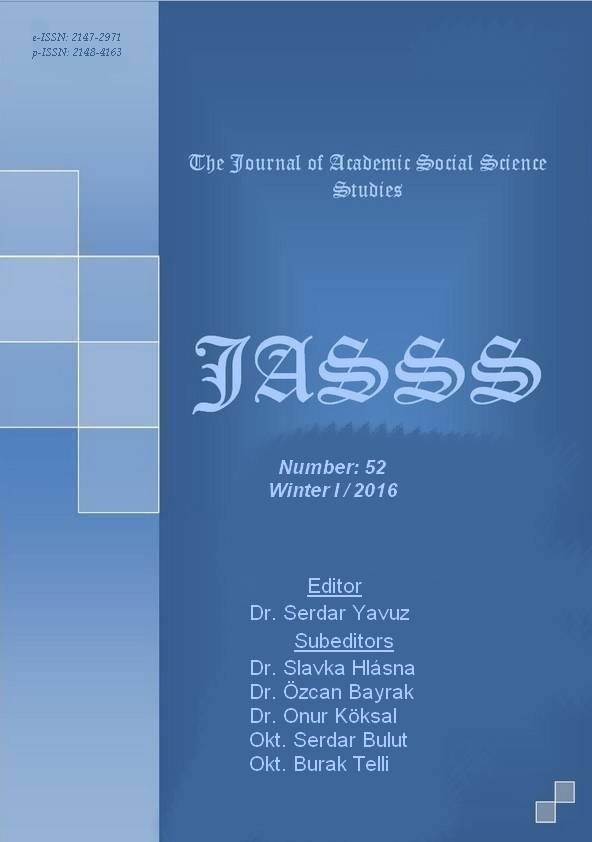Author :
Abstract
Bu çalışmada, ortaokul öğrencilerinin geometriye yönelik tutumları ile öz-yeterlikleri arasındaki ilişkinin incelenmesi ve geometriye yönelik tutum ve öz-yeterliklerinin farklı değişkenlere (cinsiyet, sınıf düzeyi vb.) göre incelenmesi amaçlanmıştır. Çalışma 2015-2016 eğitim-öğretim yılında Kocaeli ili, İzmit ilçesindeki bir ortaokulda gerçekleştirilmiştir. Çalışma grubunu 5., 6., 7. ve 8. sınıfta öğrenim görmekte olan 439 öğrenci oluşturmuştur. Veri toplama aracı olarak “Geometriye Yönelik Öz-yeterlik Ölçeği” ve “Geometriye Yönelik Tutum Ölçeği” kullanılmıştır. Araştırmada ortaokul öğrencilerinin geometriye yönelik öz-yeterlikleri ile tutumları arasında pozitif yönde yüksek düzeyde anlamlı bir ilişkinin olduğu ortaya çıkmıştır. Öğrencilerin geometriye yönelik öz-yeterliklerinin cinsiyetlerine göre anlamlı bir farklılık göstermediği belirlenirken tutumlarının cinsiyetlerine göre anlamlı bir farklılık gösterdiği belirlenmiştir. Öğrencilerin geometriye yönelik öz-yeterliklerinin ve tutumlarının sınıf seviyesi ve akademik başarılarına göre anlamlı bir şekilde farklılaştığı araştırma sonuçları arasındadır. Öğrencilerin geometriye yönelik öz-yeterlikleri anne-baba eğitim düzeylerine göre anlamlı bir şekilde farklılık gösterirken, tutumlarının anne eğitim düzeyine göre anlamlı bir farklılık göstermediği bunun yanı sıra baba eğitim düzeyine göre anlamlı bir farklılık gösterdiği belirlenmiştir.
Keywords
Abstract
In this study, it was aimed to investigate relationships between middle school student’s attitudes and self-efficacy towards geometry and is to investigate attitudes and self-efficacy towards geometry in terms of different variables (gender, grade levels etc.). The study was carried out in a public middle school in İzmit district of Kocaeli at 2015-2016. The study group is consisted of 439 students who are studying in 5th, 6th, 7th and 8th grades. “Self-Efficacy Scale toward Geometry” and “Scale for Attitudes toward Geometry” was used as data collection tools. In this study, it was found that there was a highly positive and significant correlation between middle school students’ self-efficacy and attitudes towards geometry. It was determined that self-efficacy towards geometry of students did not differ by their gender but the attitudes towards geometry of students differ by their gender. Both self-efficacy and attitudes of students differed significantly according to their grade levels and academic success. It was determined that self-efficacy towards geometry of students differed significantly according to educational levels of their parents. It was determined that attitudes towards geometry of students differed significantly according to educational levels of their fathers. On the other hand, attitudes of students did not differ by educational levels of their mothers.





